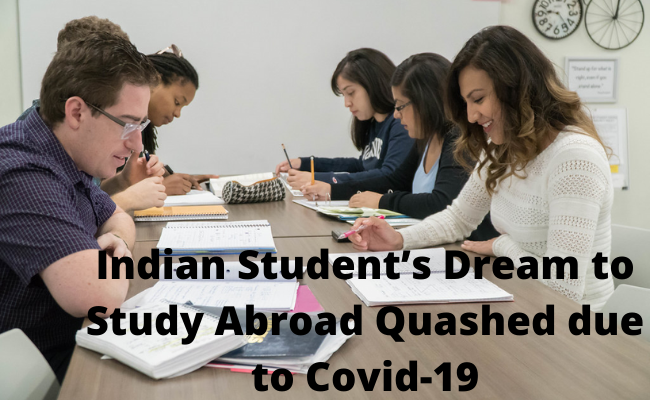
A couple of years back, 29-year-old Raunaq Singh began working towards his dream of pursuing an MBA a top business school abroad. In January 2020, he was waitlisted by UC Berkeley’s Haas School of Business in California and was asked to send more information to bolster his case for admission.
So he quit his stable job where he worked for over five years and started working as a consultant with a mental wellness start-up after incurring a major pay cut. Fortunately, he was accepted at UC Berkeley and was due to start his program this September. But with the rise of fatalities due to the Covid-19 outbreak, this suture seemed to get bleaker by the day.
Mr Singh is one of the thousands of Indian students planning to pursue further education at a foreign institution. Now that there are international travel restrictions, new social distancing norms, the entire admission process has collapsed with no contingency.
After the People’s Republic of China, it is India that sends the most number of students abroad than any other nation. According to India’s Ministry of External Affairs, over one million Indians are pursuing higher education programs overseas as of July 2019. But with the Covid-19 outbreak, the immediate future has been pushed into a period of growing uncertainty.
Pursuing education abroad is made more expensive by the fact that the students have to pay for their expenses in dollars and pounds alongside the additional cost of appearing for standardised tests and submitting applications.
A Virtual curriculum means that the student does not have to pay for a visa, air tickets or living expenses. However, several students are quite hesitant about spending their money to pay for attending college from their living rooms.
Even if several months later, the situation does improve, there will be a period of lowering job prospects and healthcare issues, especially in the US. Alongside that, the idea of returning to India with an expensive degree and the looming unemployment is a cause for concern among these students.
As Mr Singh said, “The risk we take when we leave our home country and move to another country- that risk has increased quite considerably,” The current pandemic and its consequent economic impact has severely affected the decision of around 50 per cent of the Indians who wanted pursue education abroad. Experts suggest that the universities are in a tough spot too.
International students add an estimated 45 billion dollars annually to the US domestic economy. In the UK, universities receive almost 7 billion pounds in fees from such overseas students. Hence it is evident that their finances will take a major blow if the number of foreign applicants sees a sharp decline, as predicted.
There might also be a knee-jerk reaction triggered by this, as a large number of international students will consider deferring their admission dates to 2021. But, in the long run, the ambitions of Indian students towards pursuing education abroad will certainly grow back.
Stay connected with fellow students on PaGaLGuY for GMAT Exam Discussions
Source: BBC News
